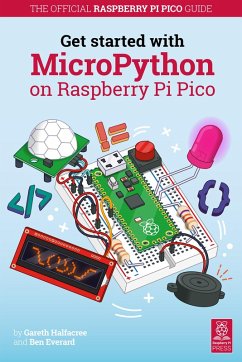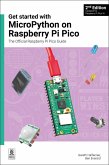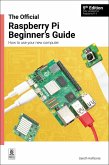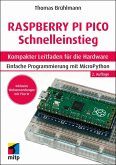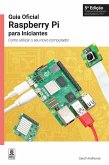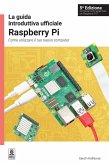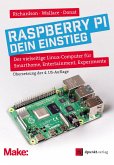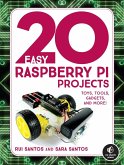Microcontrollers, like the RP2040 at the heart of Raspberry Pi Pico, are computers stripped back to their bare essentials. You don't use monitors or keyboards with them, but program them over USB to take their input from (and send their output to) their input/output (IO) pins.
Using these programmable connections, you can light lights, make noises, send text to screens, and much more. In Get Started with MicroPython on Raspberry Pi Pico, you will learn how to use the beginner-friendly language MicroPython to write programs and connect up hardware to make your Raspberry Pi Pico interact with the world around it. Using these skills, you can create your own electro-mechanical projects, whether for fun or to make your life easier.
This book shows you how to:
By the end of the book, you'll know how to create your own programmable electronic contraptions. What you do with them is up to you.
Using these programmable connections, you can light lights, make noises, send text to screens, and much more. In Get Started with MicroPython on Raspberry Pi Pico, you will learn how to use the beginner-friendly language MicroPython to write programs and connect up hardware to make your Raspberry Pi Pico interact with the world around it. Using these skills, you can create your own electro-mechanical projects, whether for fun or to make your life easier.
This book shows you how to:
- Get started with Raspberry Pi Pico
- Work with various electronic components
- Create your own programmable electronic contraptions
- Work with Programming Input and Output (PIO) for low level, timing-critical projects
- Learn the Raspberry Pi Pico pinouts for hooking up components
- Use the I2C and SPI protocols to connect to components
By the end of the book, you'll know how to create your own programmable electronic contraptions. What you do with them is up to you.
Dieser Download kann aus rechtlichen Gründen nur mit Rechnungsadresse in A, D ausgeliefert werden.

